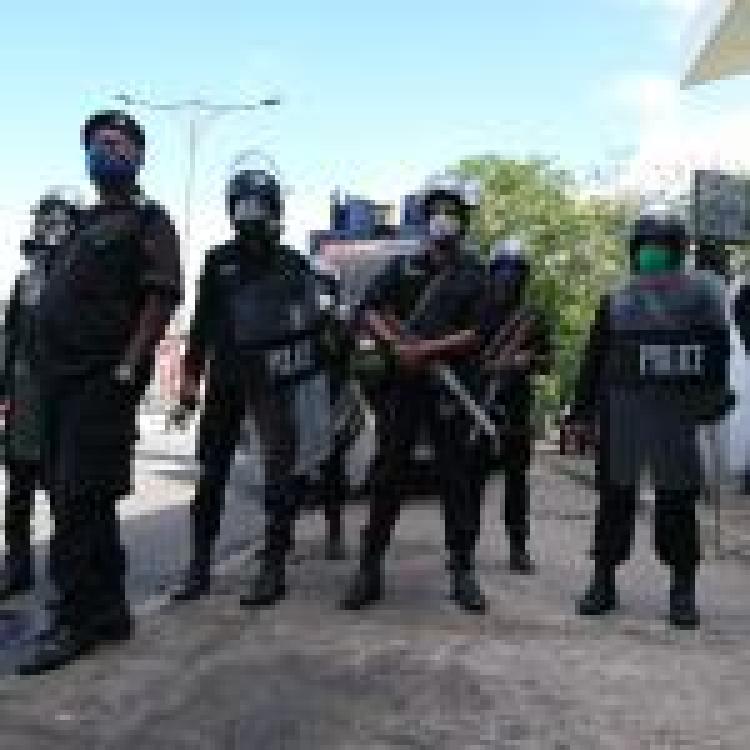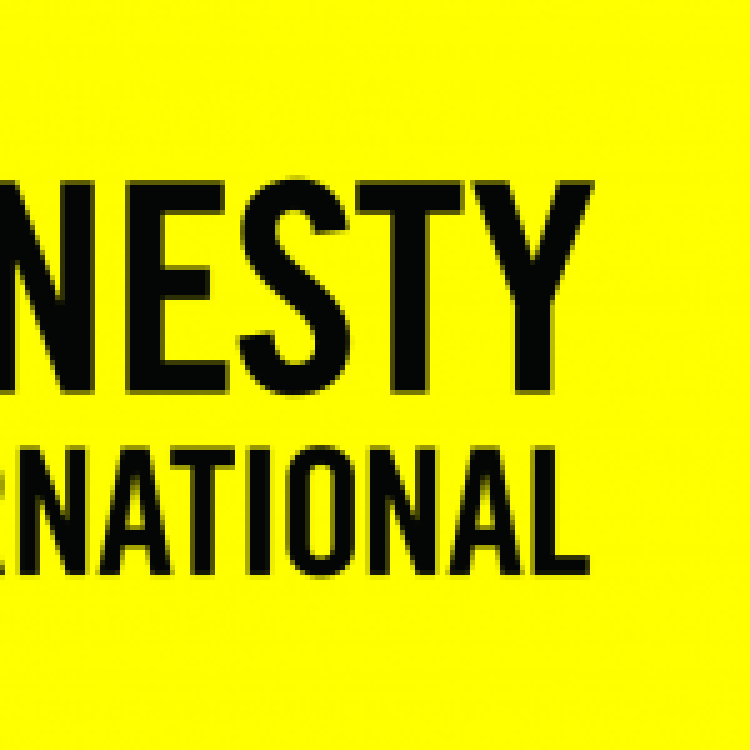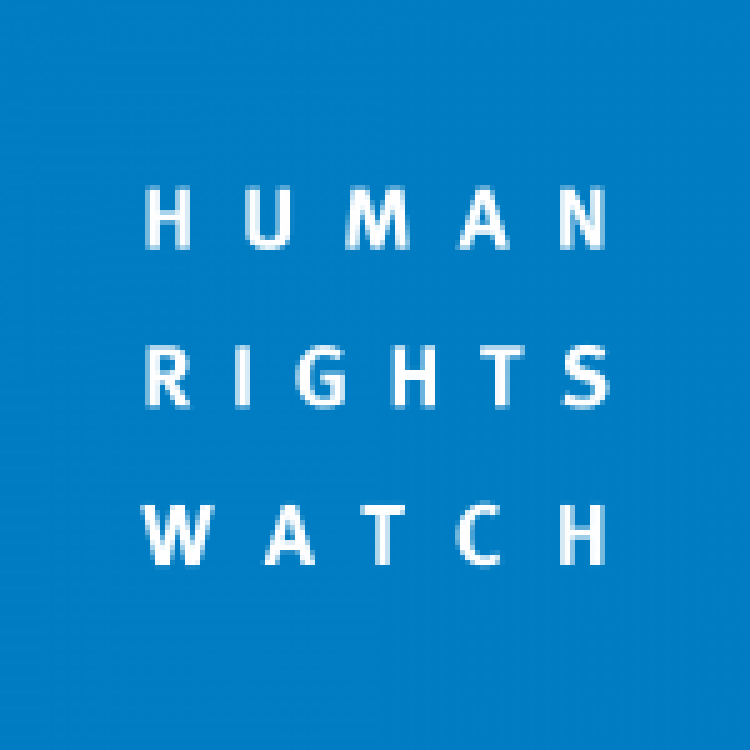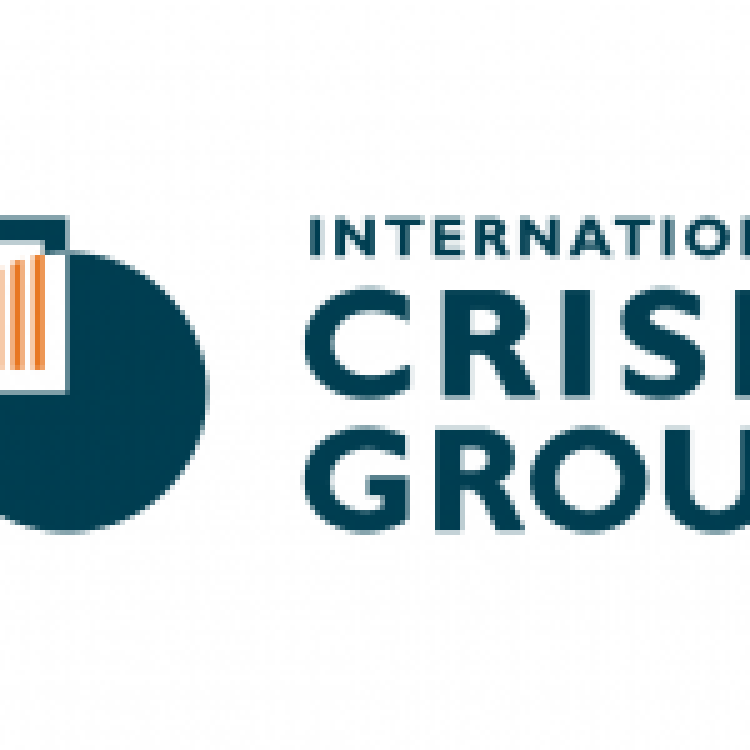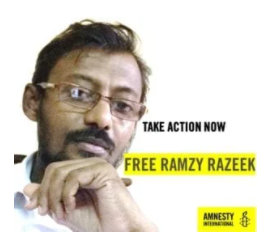
Amnesty International announced that Ramzy Razeek, an online activist was granted bail by the Colombo High Court after a hearing on Thursday morning, after spending more than five months behind bars in Sri Lankan detention.
Razeek was arrested in April after he wrote a post on his Facebook wall on the need for an “ideological Jihad” to stop organized anti-Muslim propaganda. His post was met with violence against him and his family, leading the activist to declare he would be self-censoring due to the treats he faced.
He complained to the Sri Lankan Police about the threats he was receiving on April 9th. That afternoon, three CID personnel visited his home and took him to Colombo, informing his family that he would be released the next day. His family has had no contact with him since, except a solitary one-minute phone call.
Treated poorly in spite of his debilitating medical condition in an overcrowded and unhygienic prison facility, human rights organisations rallied behind Razeek, stating he bore undue punishment for exercising his right to freedom of expression. Previously a journalist who freelanced for the Sri Lanka Broadcasting Corporation and the Lake House Group and online activist was kept in jail without formal charges brought against him.
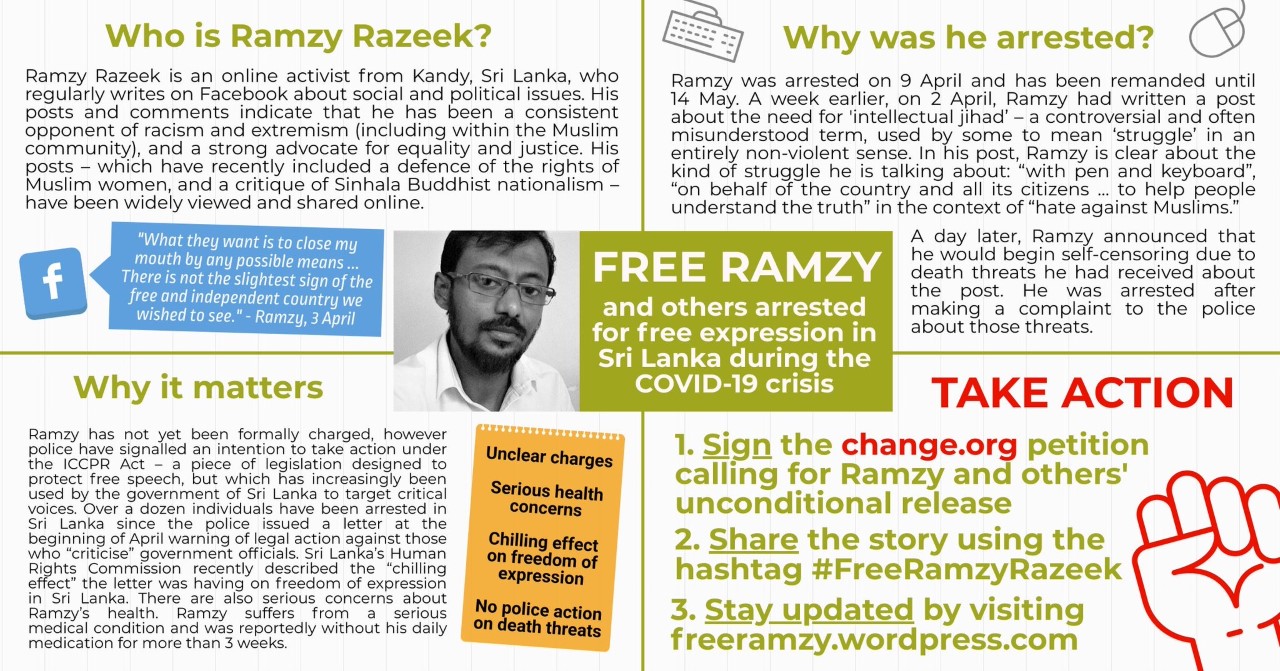
Sri Lanka has a long and brutal history of suppressing the freedom of the press, with dozens of Tamil journalists having been fled the island, tortured by security forces or even killed for their writing.
“He should have never spent a day behind bars and subjected to judicial harassment solely for exercising his right to freedom of expression,” said Amnesty International South Asia on Twitter.
“We call on the Sri Lankan authorities to immediately drop any pending charges against him, and stop using the ICCPR Act to threaten, harass and prosecute dissidents and activists for peacefully expressing their opinions.”


